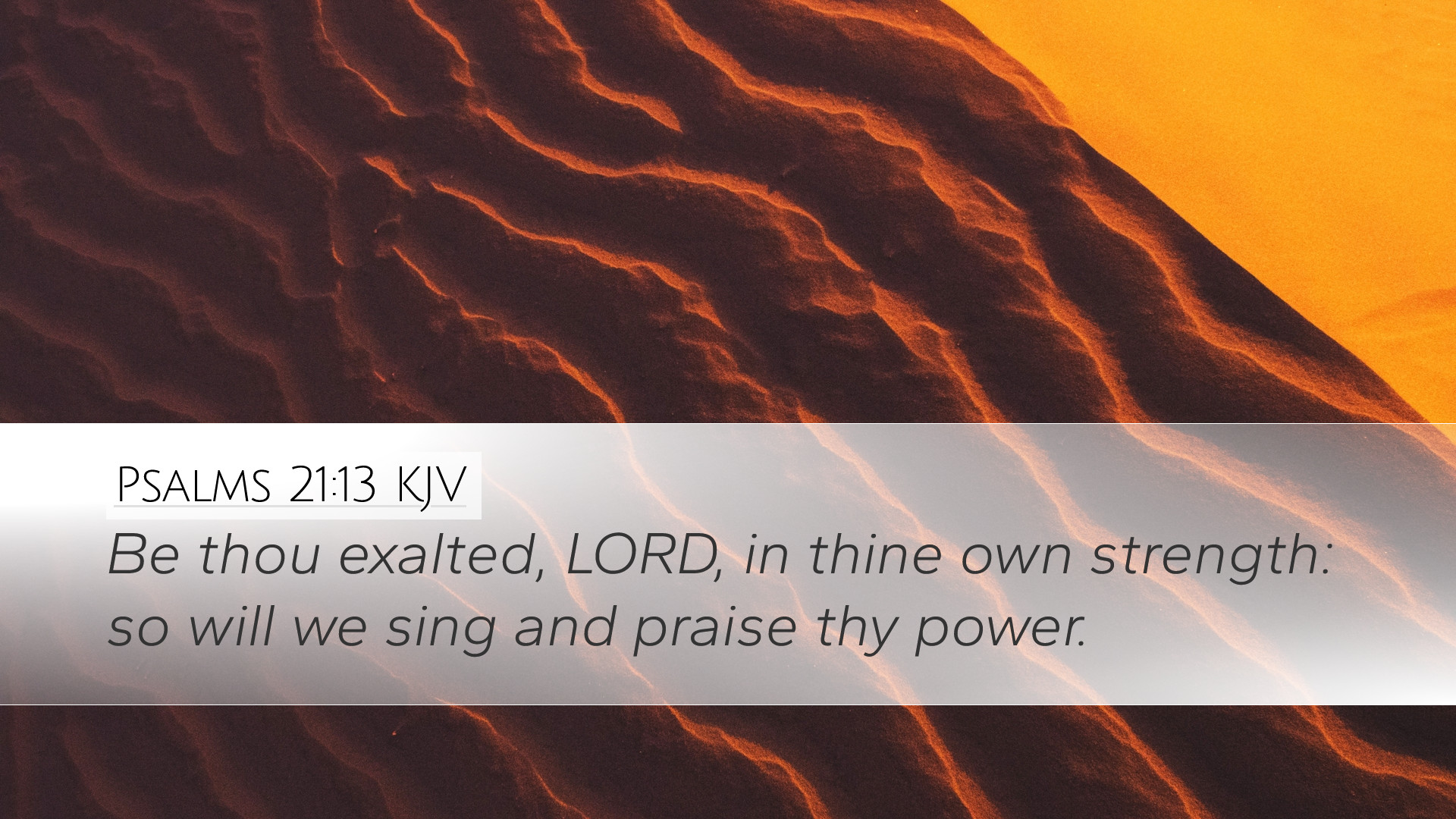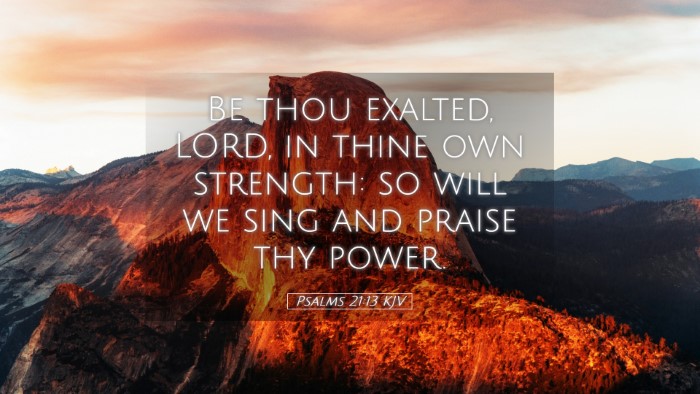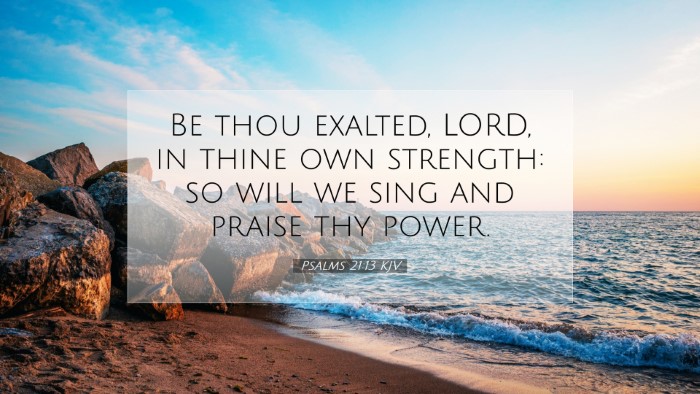Psalms 21:13 - A Combined Commentary
Verse: "Be thou exalted, Lord, in thine own strength: so will we sing and praise thy power."
Introduction
The 21st Psalm stands as a majestic declaration of God's might and a celebration of His sovereign power. It reflects the heart of David, a king who recognizes that true strength lies not within human capabilities but in divine assistance.
Contextual Overview
This Psalm is often interpreted as a royal psalm, celebrating God's favor towards the king. The context suggests a moment where David reflects on God’s blessings in battle, emphasizing the importance of recognition and praise directed toward God for victories achieved. This theme of dependence on God’s strength is critical for understanding the heart of a leader in relation to divine sovereignty.
Exegesis of Psalms 21:13
Exaltation of God: The phrase "Be thou exalted, Lord" signifies an earnest desire to lift God above all circumstances and creations. It is an acknowledgment of His ultimate authority. As Albert Barnes notes, the act of exalting God equates to ascribing to Him the highest place in both worship and life, which should be the natural response of all believers.
Divine Strength: The request for God to be exalted "in thine own strength" emphasizes a key idea—that God's power is inherent and self-sustaining. Matthew Henry argues that recognizing God's strength calls us to rely on His power rather than our own frail efforts. David's acknowledgment serves as a reminder to all leaders that success comes not through their might but through God’s strength sustaining them.
Thematic Insights
- Recognition of Divine Power: It is important for believers to recognize that all accomplishments are ultimately due to God’s grace and power.
- Response to Blessings: "So will we sing and praise thy power" indicates an appropriate response to God's mighty acts. Worship and praise should flow naturally from an understanding of God's works in our lives, as suggested by Adam Clarke.
- Collective Worship: This verse embodies a communal aspect of worship, where the community of believers joins together to exalt God, which fosters unity in their faith and purpose.
The Role of Praise in the Life of a Believer
Praising God is an essential aspect of spiritual life. Albert Barnes points out that worship serves multiple purposes: it reflects our dependence, communicates our gratitude, and fortifies our relationship with the Almighty. The act of singing in praise not only glorifies God but also strengthens the faith of the worshipers as they realize their connection to God’s workings.
The Importance of Psalm 21:13 for Leaders
For pastors and spiritual leaders, Psalm 21:13 serves as a crucial reminder of where to focus their trust and reliance. Matthew Henry emphasizes that a leader’s strength should never overshadow God’s strength. The verses encourage leaders to remain humble, recognizing that the blessings they receive are not solely due to their wisdom or might but are gifts from a loving God.
Applications for Today’s Believers
Believers today can apply the principles found in this scripture in several ways:
- Daily Recognition: Begin each day with prayers that echo the sentiment of exaltation, acknowledging God’s preeminence in all circumstances.
- Community Worship: Participate in communal worship, understanding its power to uplift and unify believers as they sing praise together.
- Strength in Weakness: Lean on God's strength in times of personal struggle, recognizing that God's power is made perfect in weakness (2 Corinthians 12:9).
Conclusion
Psalms 21:13 encapsulates the heart of worship—a call to exalt God, celebrate His strength, and respond with heartfelt praise for His mighty works. As seen through the insights of Matthew Henry, Albert Barnes, and Adam Clarke, this verse not only provides theological significance but also practical applications that resonate with believers across ages. As pastors, students, and scholars delve into this text, it serves to remind them of the infinite power and unfailing love of God, inviting them into a deeper relationship marked by exaltation and praise.


